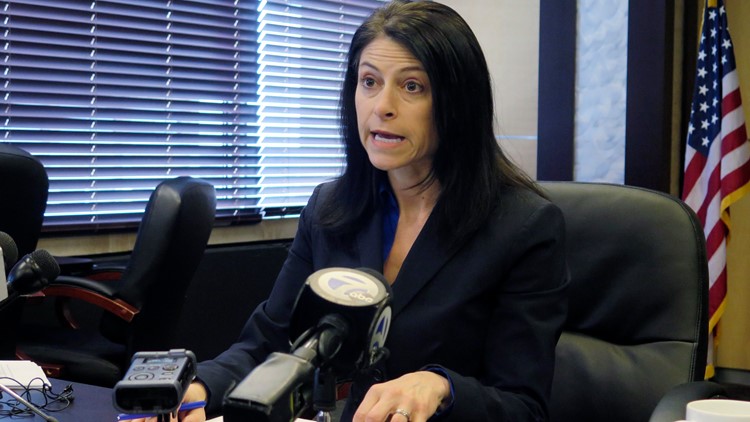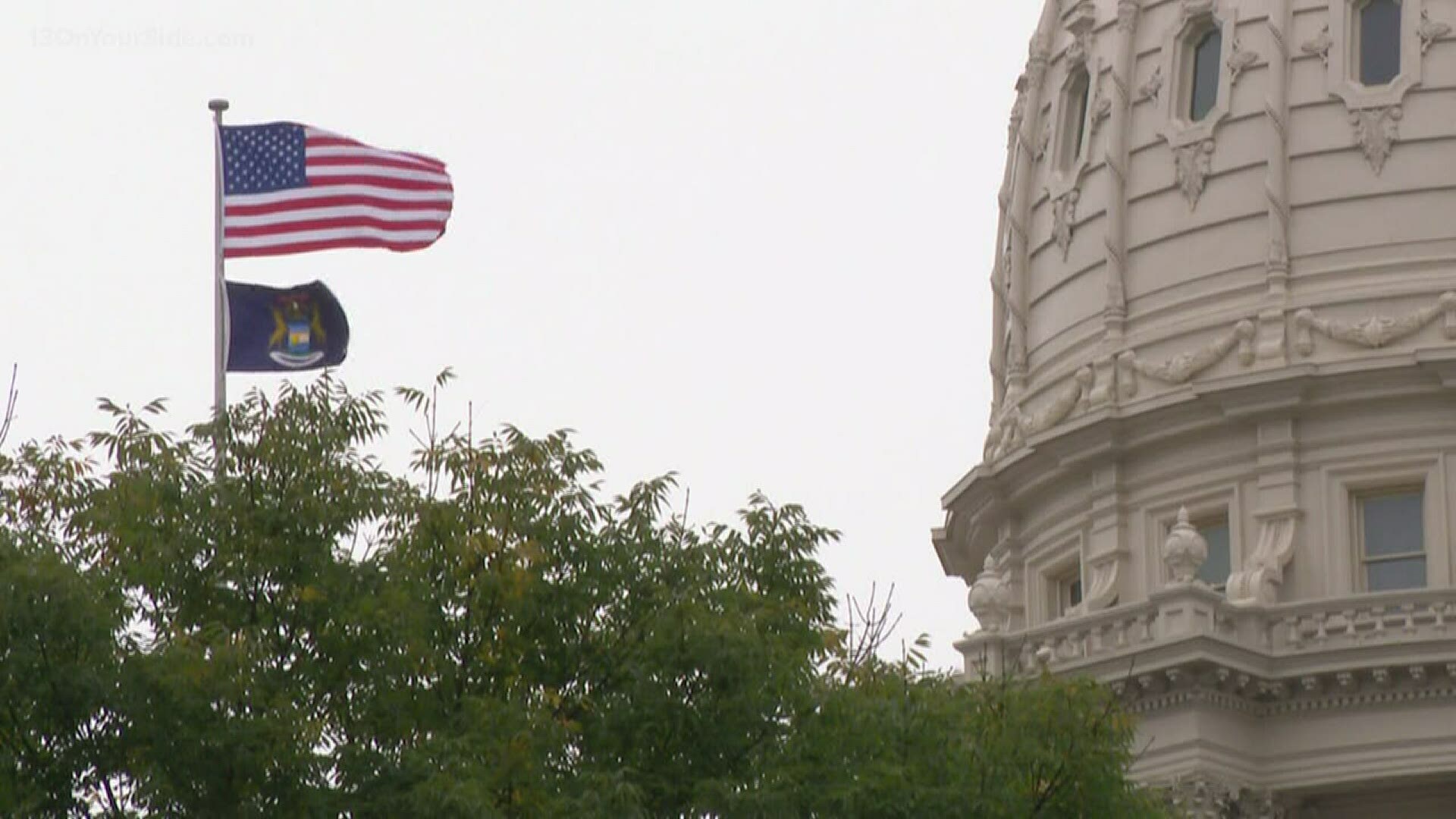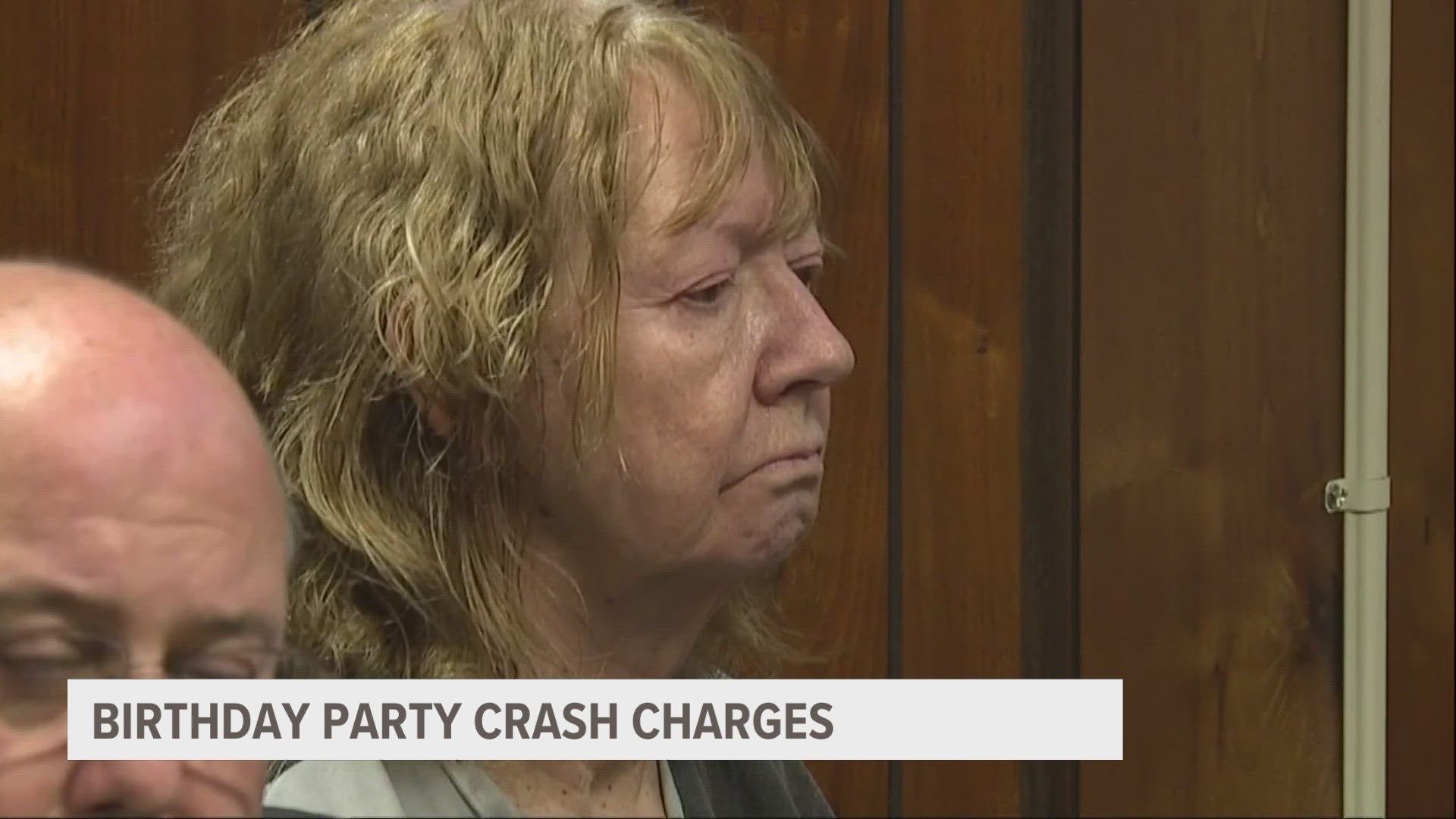LANSING, Mich. — Michigan's Attorney General Dana Nessel said Sunday morning that her office will no longer enforce the governor's executive orders with criminal prosecution in light of a recent ruling from the Michigan Supreme Court on emergency powers.
"However, her decision is not binding on other law enforcement agencies or state departments with independent enforcement authority," a statement from Nessel's press secretary said.
Gov. Gretchen Whitmer's use of emergency powers has been in a contentious legal fight for months, with her interpretation of the Michigan Constitution being questioned by the Republican-led legislature. Friday, the Michigan Supreme Court ruled 4-3 that the governor's executive orders focused on fighting COVID-19 were illegally drawn from a 1945 law.
The Supreme Court ruling said any orders issued after April 30 "now lack any basis under Michigan law," which is when the legislature voted not to extend the state of emergency enacted by the governor to respond to the COVID-19 pandemic. The state of emergency allowed Whitmer to issue dozens of executive orders that had broad effects on the state of Michigan.
Whitmer responded Friday to the Supreme Court ruling, saying it is "deeply disappointing" and she "vehemently" disagreed with the court's interpretation of the Michigan Constitution. She then said the ruling doesn't take effect for 21 days, so her "emergency declaration and orders retain the force of law."
The 21-day delay has been up for argument over the weekend, with some saying the orders were immediately voided and others saying they are still in effect while Whitmer has a chance to fight the ruling.
Typically, a Supreme Court order is stayed for 21 days to allow the chance for reconsideration. However, a legal expert explained to 13 ON YOUR SIDE, that this ruling in particular is not a normal case because it was referred to the Michigan Supreme Court by a federal court.
The Michigan Supreme Court certified the question from the federal court, and issued their decision Friday. At this point, the case is still pending in the federal court, but there is a split of authority on whether the 21-day rule remains in effect.
With questions surrounding this ruling, Whitmer appeared on CNN's State of the Union Sunday morning, and commented on what she said was a partisan decision.
"The Supreme Court in Michigan undermined my emergency rule. My Emergency orders that I've had to enact the puts us in the same state as all other states in this nation," she said. "The Supreme Court, and a slim majority Republican vote undermined that effort."
The governor's office then sent out a statement Sunday afternoon, saying "The Supreme Court’s ruling raises several legal questions that we are still reviewing. While we are moving swiftly, this transition will take time."
Even with the governor's emergency powers overturned by the state Supreme Court, Whitmer said that some of the mandates will remain in effect because they were put in place by "alternative sources of authority." The Michigan Department of Health and Human Services issued its own public health orders, some of which duplicate the governor's executive orders.
Under this, certain orders, like the mask mandate, restrictions on group sizes, the workplace safeguards and others would remain in effect without the executive orders. These epidemic public health orders can still be enforced by the Attorney General's office.
Whitmer's office said, "We will have more to say on this in the coming days."
Republican State Senate Majority Leader Mike Shirkey said Saturday that he does not support a statewide mask mandate. Other Republican leaders have urged for the state's coronavirus response to be bipartisan, moving regulations through the legislation.
Speaker of the House Lee Chatfield called the ruling a "giant win" for the people of Michigan, saying he is ready to work with the governor on the state's response to the pandemic.
“It’s been said the governor is in the best position to act quickly, and the Legislature is in the best position to act deliberately. That is how our entire system is designed to work. We look forward to the coming bipartisan deliberations on the pandemic response and the improved outcomes for Michigan families," his statement read.
In Sunday's press release, Nessel said that even without Whitmer's executive orders, she hopes residents continue to abide by some of the public health measures put in place.
"We can respect both the court’s decision and the advice of medical experts by continuing with these important measures voluntarily," the statement read.
RELATED VIDEO FROM APRIL:
►Make it easy to keep up to date with more stories like this. Download the 13 ON YOUR SIDE app now.
Have a news tip? Email news@13onyourside.com, visit our Facebook page or Twitter. Subscribe to our YouTube channel.




